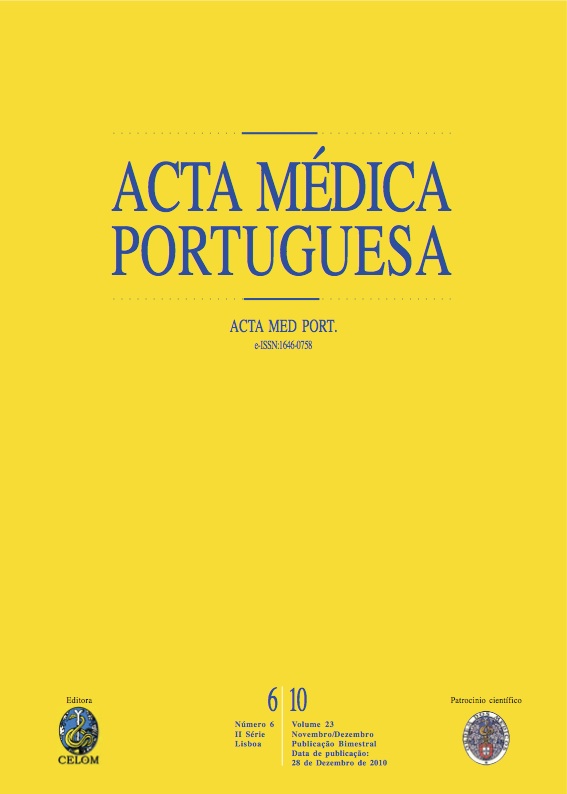Ethical, technical and legal procedures of the medical doctor responsibility to accomplish the road enforcement law about driving under the influence of alcohol and psychotropic substances.
DOI:
https://doi.org/10.20344/amp.743Abstract
The forensic toxicology (TF) is a science of analytical basis, aiming to clarify legal issues related to poisoning, whether or not fatal, within the various areas of law (criminal, civil, labor, etc.). The analysis that are more often requested (with a tendency to increase and gaining rising attention) are those concerning the procedures involving supervision of driving under the influence of alcohol and psychotropic substances, in the living individual and in the cadaver. The key players in this process, are: (a) the police agents carrying out the screening and quantification of alcohol on the exhaled breath and the screening of psychotropic and stupefacient substances in saliva; (b) the public health services that perform qualitative analysis of these substances in urine (if the test was not previously performed in saliva); (c) the doctor that collects blood samples from the living, or the dead victim; (d) the forensic toxicologist who conducts toxicological analysis in blood (or, eventually in another biological sample) and (e) the magistrate prosecutors that ultimately will receive the toxicological report to apply the law. Therefore it is important to understand and be acquainted with the road law enforcement of driving under the influence of alcohol and psychotropic substances, particularly in what concerns to the role of the medical doctor. Consequently, this paper aimed to review these topics, namely highlighting the necessary information to clarify the interested parties about the technical, ethical and legal procedures to consider.Downloads
Downloads
How to Cite
Issue
Section
License
All the articles published in the AMP are open access and comply with the requirements of funding agencies or academic institutions. The AMP is governed by the terms of the Creative Commons ‘Attribution – Non-Commercial Use - (CC-BY-NC)’ license, regarding the use by third parties.
It is the author’s responsibility to obtain approval for the reproduction of figures, tables, etc. from other publications.
Upon acceptance of an article for publication, the authors will be asked to complete the ICMJE “Copyright Liability and Copyright Sharing Statement “(http://www.actamedicaportuguesa.com/info/AMP-NormasPublicacao.pdf) and the “Declaration of Potential Conflicts of Interest” (http:// www.icmje.org/conflicts-of-interest). An e-mail will be sent to the corresponding author to acknowledge receipt of the manuscript.
After publication, the authors are authorised to make their articles available in repositories of their institutions of origin, as long as they always mention where they were published and according to the Creative Commons license.









